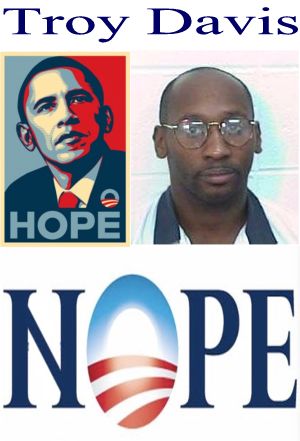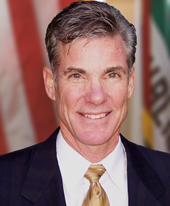The State of Georgia Has Killed Troy Anthony Davis


 View full sizeBrent Wojahn/ The OregonianBenson High freshman Alainya Cordero works on geometry homework during her 90-minute morning study hall, which she shares with about 200 other students.
View full sizeBrent Wojahn/ The OregonianBenson High freshman Alainya Cordero works on geometry homework during her 90-minute morning study hall, which she shares with about 200 other students.

Notes from the Field
Submitted by Frank Murphy on September 20, 2011
 In late March of this year, a seven part investigative series on school violence, titled Assault on Learning, was published in the Philadelphia Inquirer. This report provided a comprehensive and balanced looked at the problems created in classrooms across the city as the result of the disruptive and sometimes criminal behavior of a small group of juvenile offenders.
In late March of this year, a seven part investigative series on school violence, titled Assault on Learning, was published in the Philadelphia Inquirer. This report provided a comprehensive and balanced looked at the problems created in classrooms across the city as the result of the disruptive and sometimes criminal behavior of a small group of juvenile offenders.
Throughout this series, the reporters did a good job of describing what school violence looks like to the people who inhabit our public schools. They provided a variety of examples of its ill effects on students, teachers and parents. They also identified the schools having a large number of incidents of school violence.
In addition to detailing the extent and types of serious incidents that have occurred in the district during the last five years, the journalists also attempted to delve into the root causes that contribute to violent student
September 21st, 2011 by ASCD Whole Child Bloggers

Post submitted by Andrew Miller, an international consultant who works independently and for groups such as the Buck Institute for Education and Abeo School Change (formally known as the Small Schools Project). He has taught both online and in the brick-and-mortar setting, incorporating his core tenets of culturally responsive teaching, project-based learning, and game-based learning. Connect with Miller on Twitter @betamiller.
Project-based learning (PBL) is a fantastic way to increase parent and community involvement in your school in a truly authentic way. Instead of finding lots of little strategies to engage parents, PBL provides an opportunity to use one part of your school identity, the curriculum and instruction, as the leverage to have parents present at the physical
September 21, 2011
Dear County and District Superintendents and Charter School Administrators:
WORK EXPERIENCE EDUCATION AND WORK PERMIT AUTHORIZATION
The California Department of Education (CDE) is pleased to announce the adoption of new and amended California Code of Regulations, Title 5 (5 CCR), along with new work permit forms. The State Superintendent of Public Instruction (SSPI) and the State Board of Education (SBE) recently adopted rules and regulations necessary to clarify the standards set by the department in order to better support local educational agencies (LEAs) in Work Experience Education (WEE) programs and regulations associated with the issuance of work permits.
These positive changes include: (1) clarification on WEE statewide program standards; (2) updated program terminology; (3) incorporated by reference the Statement of Intent to Employ a Minor and Request for Work Permit/Certificate of Age (CDE Form B1-1, revised July 2011) as a Certificate of Age; and (4) clarification of work permit requirements pertaining to minors in unpaid training, volunteer, or in-school placement positions.
In light of these recent changes, LEAs are required to update letters of authorization for school personnel responsible with the issuance of work permits to California minors (California Education Code Section 49110) and have on file with the CDE an updated WEE Secondary District Plan (5 CCR 10070). If your WEE Secondary District Plan has not been updated with the CDE within the past 3 years, please submit an updated plan aligned with existing laws and regulations by Friday, December 9, 2011, to:
Kimberly B. Born, Education Programs Consultant
High School Transformation Unit
Secondary, Career, and Adult Learning Division
California Department of Education
1430 N Street, Suite 4503
Sacramento, CA 95814-5901
To obtain a copy of the updated Secondary District Plan for WEE template and application, please e-mail your request tokborn@cde.ca.gov.
Please forward this letter to all high school principals in the district.
If you have any questions regarding this subject, please contact Kimberly B. Born, Education Programs Consultant, High School Transformation Unit, by phone at 916-319-0480 or by e-mail at kborn@cde.ca.gov.
Sincerely,
Tom Torlakson

TT:pa
Many years ago, through no effort (or fault) on my part, I became--temporarily--a Famous Teacher. What was most astonishing about this experience: a wide range of people (from broadcast media figures to the district Superintendent) suddenly paid attention to what I had to say about education. I was phoned and asked my opinion when critical education issues emerged in Michigan. I was offered positions on statewide task forces and columns in the local newspaper. I even shot a TV commercial supporting an education funding initiative, and flew around the state with the Governor on a promotion tour. Good times.
As any teacher who finds herself publicly distinguished knows, however--opportunities to "speak for teachers" are almost always accompanied by some questionable baggage. There's the token teacher experience, where

 coopmike48
coopmike48 coopmike48
coopmike48 mikeklonsky
mikeklonsky mikeklonsky
mikeklonsky DianeRavitch
DianeRavitch DianeRavitch
DianeRavitch leoniehaimson
leoniehaimson mikeklonsky
mikeklonsky leoniehaimson
leoniehaimson mikeklonsky
mikeklonsky mikeklonsky
mikeklonsky mikeklonsky
mikeklonsky leoniehaimson
leoniehaimson fklonsky
fklonsky coopmike48
coopmike48 leoniehaimson
leoniehaimson mikeklonsky
mikeklonsky coopmike48
coopmike48 fklonsky
fklonsky coopmike48
coopmike48 coopmike48
coopmike48 leoniehaimson
leoniehaimson coopmike48
coopmike48 coopmike48
coopmike48 coopmike48
coopmike48 coopmike48
coopmike48 coopmike48
coopmike48 coopmike48
coopmike48
 K12NN
K12NN leoniehaimson
leoniehaimson